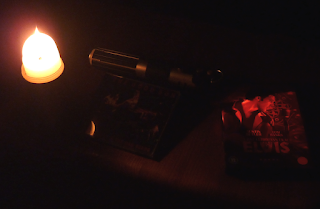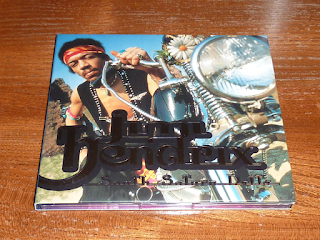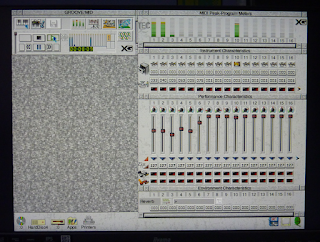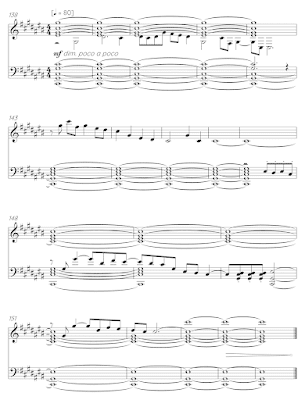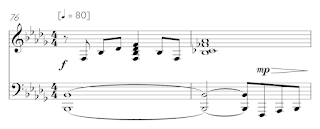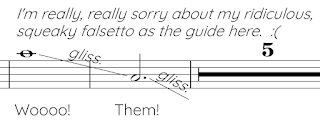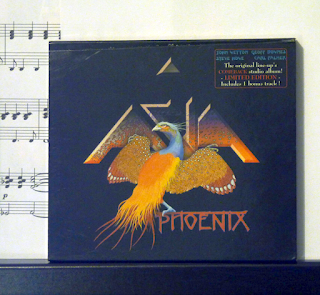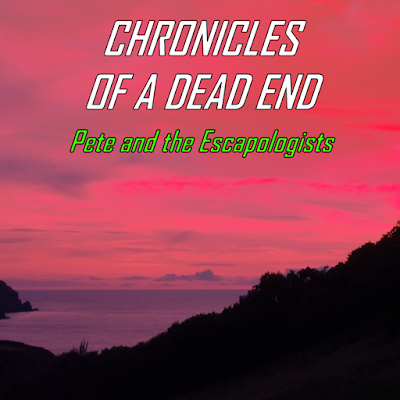Link to buy/stream: https://peteescapologists.bandcamp.com/album/chronicles-of-a-dead-end
On finishing Escapade 2 back in 2012, I recall remarking "I'm quite pleased with this" or something to that effect. I think deep down, I knew I was fooling myself. In fact, the consensus was that 2 was an even worse experience than the original, probably as a consequence of the way the (relatively!) improved production exposed other aspects of the album's presentation that undermined the material.
It says a lot that, despite Chronicles including basically all the Escapade material in some form, including the (previously) Escapade 2-exclusive stuff, this incarnation of the album trims away so much bloat that it ends up being the shortest version by a significant margin. Excluding the bonus tracks, Chronicles clocks in at a scant 35:26 - in contrast, Escapade lasts 39:10 and Escapade 2 a hefty 44:47!
Anyway, this time around, while I'm a little nervous after 2's savage reception, I'm also genuinely excited by the performances I've got out of the musicians I worked with. The thunderous 5-string bass in "Them" particularly stands out to me. Moreover, the impression I got throughout these sessions was that the artists honestly liked the material and wanted to give it their best.
*
In a final, strange twist of fate, I recently found myself in a situation where I needed to play back MIDI from my family's old Acorn computer. This necessitated the acquisition of a General MIDI-compatible synthesizer with an old-fashioned 5-pin MIDI input, instead of USB or Bluetooth connectivity. It seems they don't make those anymore, and I wasn't about to try to figure out what kind of adapter to use, so I ultimately opted to buy a second-hand PSR-5700. That's right: the instrument that kicked off this story is back.
 |
| I wasn't playing. I was just having adventures in modern (circa 1992, I guess) recording. |
Having played with it a bit, I honestly do get why my childhood/adolescent self associated its capabilities with exciting, yet comforting feelings. But I was also struck by the way that some kinds of music stand up to it better than others - some of the MIDI files I played through it sounded pretty cool, while others sounded so dull that I couldn't finish listening. The implication is that this, too, might have been not such a dead end, had I trained myself to discern what makes a piece of music sound good filtered through MIDI. After all, pre-PS2-era (or thereabout) video game composers would have had to do just that! I probably still could, actually, but the kind of organic, emotional music to which I instinctively gravitate is indeed incompatible with this technology on a fundamental level.
In closing, I'd like to reflect that starting out, I had not the faintest inkling that this project would ultimately lead me back to my classical roots, of all places. Just because something isn't a dead end, does not necessarily mean that it leads where you think it will!





